Alexander J. Motyl's Blog, page 23
September 20, 2012
Heard and Overheard in Ukraine
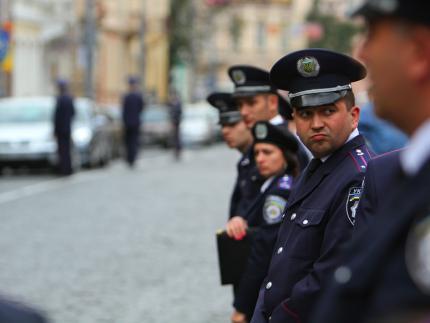
Conversation between two women in a mini-bus:
The driver has turned on the radio, which is playing Russian pop music loudly.
First woman: (to driver) Would you please turn that down a bit? I’m trying to read.
Second woman: (to first) Actually, he should turn it off completely. It’s our right.
First woman: (laughs) Rights? We have no rights in this country! Only obligations.
Second woman: (nods silently)
Conversation between two men:
First man: So tell me. Have things gotten better or worse in the two years that Yanukovych has been president?
Second man: Better!
First man: Better? How can that be, what with all the restrictions on business, the corruption, the— How could things have gotten better?
Second man: They haven’t gotten worse.
First man: Yes, but have they gotten better?
Second man: Of course they’ve gotten better! They’ve gotten better because they haven’t gotten worse!
Conversation between a Communist and a non-Communist:
First man: You understand, of course, that I’m on the left.
Second man: You were a member of the Communist Party, weren’t you?
First man: I was an agitator then. And I’m still a member.
Second man: But you know that your party leader, Petro Symonenko, is a millionaire.
First man: I don’t believe it. Where did you read that?
Second man: It’s in all the papers, on the Internet.
First man: I don’t believe it.
Second man: But everybody knows!
First man: I don’t believe it.
Second man: So how do you think you’ll do in the elections?
First man: I think we’ll get more votes than last time.
Second man: And the Party of Regions?
First man: Not so well as last time.
Second man: Do you think there’s any chance of reconciliation between the Soviet partisans and the nationalist insurgents?
First man: Never! I served in the Soviet Army during World War II, and I’m the head of the veterans’ organization in my town. And I can assure you: it’ll never happen!
Monologue by a professor:
We’re currently experiencing the second wave of dekulakization. The first wave occurred in the early 1930s, when the Bolsheviks expropriated the land of the kulaks, the rich peasants. The second is taking place now, with the Yanukovych regime’s crackdown on small and medium business. And do you know what these two waves of dekulakization have in common? It’s not about wealth. It’s about autonomy. It’s about independence. Neither the Bolsheviks nor the Yanukovych regime can tolerate an autonomous society that could act independently of them. That’s why the Bolsheviks had to destroy the kulaks. And that’s why the Yanukovych regime will never permit the emergence of a strong small and medium business sector.
Conversation among three men:
First man: The Party of Regions—they’re all bandits, thieves, crooks! I know these guys personally. They’re cutthroats. They’ll do anything.
Second man: Did you know Akhmetov?
First man: I played cards with him when he was just a card sharp. Smart guy. He beat all of us.
Third man: He runs the country. He runs everything. If you want to survive in the Donbas, you’ve got to be on his side.
Second man: And what about the Party of Regions?
Third man: They’re aligned with him and his people. It’s like the mafia. They control everything. They run everything.
First man: But we’ll smash them.
Third man: Ukraine is dead. There’s no hope for the future.
Second man: You’re assuming that the power holders have a plan, that they’re clever and united.
Third man: They disagree only about how much to steal and where. Other than that, they’re united. And Ukraine has no hope.
First man: Just you wait. One day we’ll smash them.
Conversation between two intellectuals, a husband and wife:
First intellectual: The opposition is as corrupt as the Yanukovych regime. There’s no choice in the elections.
Second intellectual: Don’t be stupid. If you think that way, you’re supporting the regime.
First intellectual: Not at all! I’m going to vote for the people I believe in. How can I vote for someone I don’t trust?
Second intellectual: In that case Yanukovych wins. It’s imperative that the Party of Regions not seize complete control of the Rada. If they do, all is lost. They’ll destroy democracy completely and make sure that Yanukovych wins.
First intellectual: But there’s no moral difference between the regime and the opposition!
Second intellectual: But there’s an enormous political difference! Don’t be stupid. Think strategically.
First intellectual: And abandon my principles?
Conversation between two women waiting on line:
First woman: I’m Russian and I was born in Leningrad, you know.
Second woman: And how long have you been in Ukraine?
First woman: A long time. I love the country—and especially Western Ukraine. But you know what the main difference is between Russians and Ukrainians?
Second woman: What?
First woman: Russians love their country. Most Ukrainians don’t. But I do.
September 13, 2012
Delinquents vs. Democrats in Ukraine
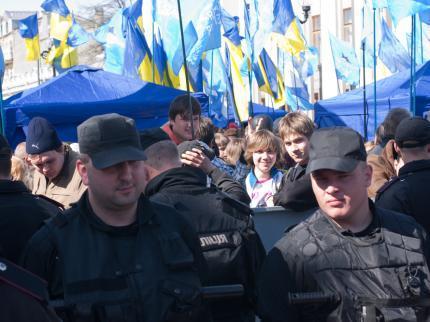
Word’s out in Ukraine that there is “no difference” between the Regionnaires and the opposition. The implication is obvious: it doesn’t matter whom you vote for in the October 28th parliamentary elections and it doesn’t even matter whether you vote. After all, whoever wins, whether Regionnaires or the opposition, there’s “no difference.”
This is nonsense.
Let’s consider a few dimensions along which one might measure difference.
Moral qualities: There are, as everyone knows, far too many crooks and corruptioneers among the democrats, but the crucial difference between them and the Regionnaires is that, while the former tolerate thugs within their ranks, the latter are thugs. It’s like the difference between Fortune 500 CEOs and the mafia. Are there criminals among the former? Of course. Do most of them probably do things we’d consider a tad shady? Sure. But they ain’t the mafia. Even that notorious thief, Bernie Madoff, was no Al Capone. Or to put it a different way: Whom would you prefer to encounter in a dark alley—a typical democrat or a typical Regionnaire? Arsenii Yatseniuk or Viktor Yanukovych Junior?
Democratic proclivities: There’s no question that the Orange democrats screwed things up royally while in power from 2005 to 2010. Reform was zilch, and the government seemed to be in permanent crisis. But, by any measure, Ukraine was democratic and Ukrainians were free. And that’s because the Orange and post-Orange democrats genuinely value things like democracy and freedom. Now, compare their record to that of the Regionnaires. In the last two years, since Viktor Yanukovych’s election as president in 2010, Ukraine’s democracy has been dismantled: the president has become all-powerful, the parliament is a joke, and the courts are puppets of the executive. Moreover, freedoms of speech, of assembly, and of the press have been and are being constricted. Does anyone have any doubts that in three more years the condition of democracy and freedom in Ukraine will be even worse?
Competence and dedication to reform: Yup, the Orange democrats proved to be dreadful managers and terrible governors, so much so that they made Yanukovych look like an attractive alternative in the presidential elections of 2010. But what he and his Regionnaire cronies have managed to accomplish in the last two years is even more astounding: their level of incompetence and their complete indifference to anything resembling systemic reform have been so screamingly obvious that they’ve succeeded in making ex-president Viktor Yushchenko look like a model of competence. And small wonder. While thugs may be able to keep order in a small province, where kicking butts usually suffices to get things done, they cannot, by definition, run anything resembling a modern state and a modern economy. Street smarts, which Yanukovych acquired while running with gangs in the Donbas, just aren’t enough in government.
Statecraft: This one is easy. After five years, the Orange democrats managed to have lousy relations with Putin’s Russia and decent, though uninspired, relations with the United States, the European Union, the International Monetary Fund, and other major international actors. After just two years, the Yanukovych regime has managed even to alienate Russia, its putative pal, and is barely on speaking terms with the Americans, Europeans, and IMF. Only the Chinese have deigned to acknowledge the Regionnaires, although it’s not yet clear that their offer to lend Ukraine billions won’t be undermined by some Regionnaire blundering.
Personal wealth: Yes, the democrats have tons of cash, much of it illicitly or semi-illicitly acquired. But no, their level of wealth doesn’t even come close to that of the Regionnaires. And do you really think that any democratic president would have built a Spanish galleon as his, or her, playground? Oh, and last I looked, the mega-gazillionaire ex–card sharp Rinat Akhmetov was a Regionnaire.
I could go on, but the point should be clear: there’s a ton of difference between the Regionnaires and the democrats.
So why the widespread perception that there isn’t any?
Well, partly that’s just the line that pro-Regionnaire publicists and politicians (like the former Orange president, Yushchenko) are pushing on all the media outlets the Regionnaires control, and if you push something long and loud enough, some people will begin believing it.
But mostly the perception is due to the fact that the democratic opposition has failed to inspire the population. The democrats are regular guys, but they lack charisma and they’re not, as one lady in Kyiv complained to me, George Washingtons. Fair enough, but what’s so bad about uninspiringly regular guys? And shouldn’t you prefer them to the mafia?
And if that doesn’t persuade you, consider this. Can Ukraine survive several more years of Regionnaire rapine? Wouldn’t Ukraine be just a jot better off if the Regionnaires got a punch in the nose in the forthcoming elections and were told to back off?
The sad fact is that, if Ukrainians keep on insisting that they’ll vote only for angels, they may just ensure rule by the devils.
September 6, 2012
A Tyranny of Cats in Ukraine

The perpetually alert Yanukovych regime has recently mounted an assault on cats and other animals. For instance, a preposterously worded draft law, “On Reforming and Improving the System of Free Time in the Sphere of Defending the Surrounding Natural Environment, the Rational and Sustainable Use of Natural Resources and Ecological Security, on Reducing Regulatory Pressure on Subjects of Economic Activity,” appears to give the authorities the right to hunt down stray cats and dogs. As you may recall, the local Regionnaire authorities rid the streets of Kyiv, Kharkiv, and Donetsk of strays in anticipation of the Euro 2102 soccer championship earlier this summer. Legalizing such behavior makes perfect sense. After all, since the regime treats people as animals, why should it treat animals as animals?
But there’s more to the Yanukovych regime’s campaign against cats. The following Top Secret memorandum, graciously translated by Ukraine’s Minister of Education, Youth, and Sports Dmitri Tabachnik, recently came into my possession. I reprint it here without any changes.
To: Comrade President Viktor Yanukovich
From: Igor Kalinin, Head of Ukrainian Security Service
Regarding: Subversion of Ukraine by Imperialist Fascist Zionist Bourgeois NationalistsEsteemed Comrade Yanukovich,
It has most surely come to your esteemed attention the recent scandals in friendly neighboring state Russian Federation and in Ukraine big town of Dneprodzerzhinsk. I am having in mind latest attempts of Imperialist Fascist Zionist Bourgeois Nationalists to undermine and subvert solidity of Ukraine state and Most Democratic Rule of you. I am having in mind “CATS.”
No, Comrade President, I am not having in mind morally repulsive Broadway musical with salacious name CATS. (I am returning to same topic below.) I am, instead, esteemed Comrade President, having in mind PUSSY RIOT and subversive poster of babushka with CAT in Dneprodzerzhinsk.
It is needless to say so-called PUSSY RIOT is Zionist plot. As Comrade Tabachnik having said to me: “Is any wonder all Zionists have name KATZ?” Comrade Putin is understanding threat and is acting upon it with greatest decisiveness in world. It is also needless to say that poster of babushka with cat in Dneprodzerzhinsk, in which she saying that, “When I learned my grandson supported the Party of Regions, I transferred my house to my cat,” is Imperialist Fascist Zionist Bourgeois Nationalist plot. The both plots are being intended to undermine democracy in Russia and Ukraine!
Most energetic measures must be adopted to stopping plot!
Comrade Putin has placed pussycats in jail. Offensive subversive poster in Dneprodzerzhinsk is having been removed. But that is NOT enough!
We must do more, or else Imperialist Fascist Zionist Bourgeois Nationalists will resume campaign against Yanukovich democracy!
I am proposing to you immediately there being adopted in Ukraine following means and measures for stopping very big threat from—CATS. Da, Comrade President, we must be attacking problem not superficially, at surface level, but deep, deep, deep, in language and mentality of our beloved people. Problem of CATS must be addressed. CATS, Comrade President, must be removed from mentalitational and linguistational processes of Ukrainian people, young and old, big and small.
Comrade Minister of Education Dmitri Tabachnik and me having therefore developed complex program of fighting problem of subversion by CATS. We are therefore recommending following means and measures of purely democratic intent in ongoing struggle against Imperialist Fascist Zionist Bourgeois Nationalists.
In theatre:
Broadway musical by name of CATS will being permitted appear on stages of Ukraine only if title and all references in lyrics are being subjected to change. No more CATS! Suggesting alternative: DOGS.
Critical of decadent America play by Mister Tennessee Williams, “A Cat on the Hot Tin Roof,” must being renamed. Suggesting alternative: “Furry Creature on the Hot Tin Roof.”In movies:
It is being most obvious that “Catwoman” of Batman movies is not permissible in democratic Ukrainian state of President Yanukovich. Suggesting alternative: “Animalwoman.”In singing:
We must be banning popular 1960s’ song by decadent American group, so-called Rascals, “Feelin’ Groovy.” As esteemed Minister of Education pointing out, “Feelin’” is being pronounced “feline” in many Ukraine cities, and is obviously big invitation to subversion.I am having, Comrade President, many more most excellent ideas for combating subversion of democratic Yanukovich state. But these here being, I am hoping, a foretasting of ways and means I am intending to adopt in death struggle with Imperialist Fascist Zionist Bourgeois Nationalists.
Comrade President! Democratic Yanukovich Ukraine is just being celebrating anniversary of independence on August 24. You are being congratulated by me and all security cadres on having being transformed orange subversive chaos into true Yanukovich democracy and stability.
Next year, Comrade President, Yanukovych stability and democracy will being approaching perfection. With recommending elimination of cats, Ukrainian people will be loving you like man’s best friend.
August 30, 2012
A Jewish Diarist in Occupied Ukraine
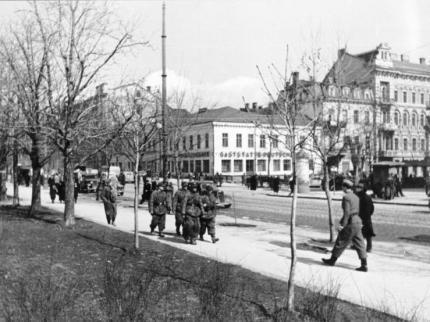
Just around the time I was writing a recent blog post on my mother’s hometown of Peremyshlyany, I came upon a fascinating diary by Samuel Golfard, a victim of the Holocaust in that very place. (The full bibliographic reference is: Wendy Lower, ed., The Diary of Samuel Golfard and the Holocaust in Galicia; AltaMira Press, 2011.)
Don’t read the diary for Lower’s superficial introduction. Although an impressively productive Holocaust scholar, Lower knows little about Ukraine and even less about Peremyshlyany and simply superimposes a ready-made Holocaust “template” on a complex country and town. But do read the diary for a gut-wrenching glimpse into the heart and mind of an articulate Polish Jew who fled his native Radom after Hitler and Stalin dismembered Poland in September 1939 and, along with more than 2,000 other Jewish refugees, settled in Peremyshlyany, then part of Soviet Ukraine. Golfard’s diary was written in Polish and encompasses the period from January 25 to April 14, 1943.
Golfard’s friend and fellow refugee, Jacob Littman, describes him as “an urbane, informed, and self-confident man” with “liberal-progressive-leftist convictions.” In the months before his death, writes Littman, Golfard “was the only Jew in the immediate territory to land a job with a German firm in charge of collecting scrap metals for recycling… [He] became a garbage collector with no pay but with a tin badge on his chest to prove his special status.” That status enabled Golfard to look, to see, and to reflect.
Golfard comes down hard on everybody. He denounces the local Jewish Council in no uncertain terms: “Those bandits have done their duty, have finally recognized that it is time to leave. Instead of arming young people and sending them to the woods, they consigned them until now to camps and a slow agony. They ‘saved’ Jewry by taking contributions from them, rounding them up for the camps, and deploying the Jewish militia in the massacres, as long as there was no threat to themselves. They sacrificed their people for the price of their own lives. Now, fleeing with their moneybags, they disappear in the nick of time—leaving, at last, the few remaining Jews to their own inevitable fate.” Golfard’s judgment is rather harsh, but his sense of betrayal and his outrage are perfectly understandable.
About Germans, Golfard speaks like a biblical prophet: “Let the German people be cursed forever. Let the damnation of the murdered mothers, children, and elderly pursue the German people to their own ultimate destruction.” However, notes Golfard, “The Germans are not alone guilty of our tragic fate. The English and the Americans who tolerated the acts of the German nation are also guilty. They fattened Hitler and nurtured the present regime in Germany.” Oddly, Golfard fails to condemn Stalin, who, as he obviously knew, “fattened” Hitler in 1939–41.
Golfard’s views of Ukrainians are both highly critical and remarkably measured. On the one hand, he says: “The participation of Ukrainians in the murder of hundreds of thousands of Jews is beyond any dispute. To this day they carry out, often ruthlessly, the beastly Hitlerian orders…. In Przemyslany the perpetrators of this were the Ukrainians. Had they been allowed, they would even today take apart the entire ghetto in their passion for plunder.” On the other hand, Golfard also notes: “I cannot for a moment equate a people with a bigger or smaller minority of its bandits. They can be found in each nation, even among the Jews.”
Poles come across best in Golfard’s account. True, he writes that “Poles as well … would rather send helpless ones to death, even when extending some help posed no threat to them.” But Golfard also says the following: “In the camps the flower of the Polish nation is perishing. Millions of Poles in Germany do the work of hard labor convicts. Tens of thousands have perished in camps… The nation in bondage is carrying a heavy yoke. But not for a moment does the nation lose hope that freedom and the fatherland will be restored.” Clearly, Golfard’s is not the prevalent image of Poles as inveterate anti-Semites.
Naturally, Golfard’s views, like those of all diarists and memoirists, must be taken with a grain of salt. He came to Peremyshlyany in mid-1941 and obviously had no time to understand the complexities of the town and its inhabitants. Living on the edge of extinction, while possibly feeling guilty for enjoying “special status,” was unlikely to foster moderate views. And, as a left-wing Jew from central Poland, Golfard probably shared many of the stereotypes that characterized Polish views of their eastern borderlands and left-wing views of nationality relations.
In that sense, Golfard was, as one would expect, a man of his times. Like most interwar Europeans and Americans (even those who claimed to be democrats), he believed that “Every nation possesses its innate traits.” Thus, “I became convinced that there is no and has never been any racial solidarity among Jews.” The innate trait of Poles is “their overly hot temperament and recklessness. With the Ukrainians, it is indisputably their hypocrisy and cruelty.” In other words, Jews can’t get along, Poles are hotheads, and Ukrainians, like the anti-Semitic image of Jews, are crafty and vicious and have a “passion for plunder.”
Like most left-wingers, however, Golfard believes that these traits, though “hereditary,” are “by no means constant. They developed in the psyche of the Ukrainian masses as a result of their political situation, always uncertain, and as a response to the methods of ruthlessness and violence that constituted their daily bread in our eastern lands” from the 17th century onward. Indeed, concludes Golfard, class is at the root of all evils: “Despite its nationalistic appearance, the struggle in the eastern provinces has its base in class discrimination with the nationalist factor only as a secondary phenomenon aroused by political parties and foreign forces.”
Golfard died in mid-1943 while attempting to shoot a Nazi official. His death was as heroic as his attempt to survive as a scrap-metal collector was not. His comments are as insightful and objective as they are one-sided and extreme. Samuel Golfard was human—indeed, very fallibly human—and he reminds us that World War II and the Holocaust were not scholarly constructs or polemical devices, but enormous human tragedies.
Photo Credit: Bundesarchiv, Bild 101I-241-2183-03A / Kurschatt / CC-BY-SA
August 26, 2012
Yanukovych’s Galleon and Yushchenko’s Obsession
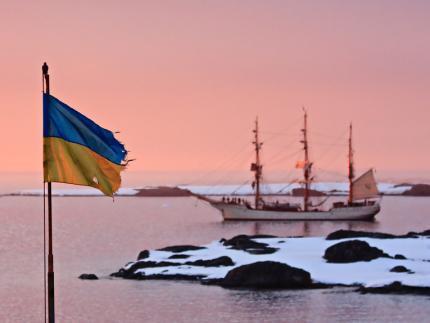
Ukraine’s last two presidents have clearly gone bonkers.
Viktor Yanukovych has built himself a Spanish galleon. Viktor Yushchenko is still suffering from his Yulia Tymoshenko obsession. The two Viktors used to stand for different visions of Ukraine. Now they stand for identical psychological maladies.
Journalist Tetyana Chornovil sneaked into Yanukovych’s palatial compound north of Kyiv on August 24th, Independence Day in Ukraine. “This was,” she later told the press, “an exclusively political action. After Yanukovych signed the law on languages, I fully understood that he is an enemy of Ukraine. I wanted to alert people to the fact that we are sliding toward dictatorship for the next 20 years. And my action was supposed to demonstrate that fences mean nothing. No fence can protect the enemies of Ukraine from the anger of people, from their peaceful actions, if many of them show up. If one person can do this, then nothing can stop a sea of humanity.”
Notwithstanding Chornovil’s intentions, her photographs also revealed the astoundingly childish megalomania of Ukraine’s current president. The press had already published photographs of the lavish inside of the “Galleon,” but Chornovil was the first to capture the outside on film. And, lo and behold, the “Galleon” really is a galleon straight out of some crazy Regionnaire designer’s notion of what the Spanish Armada must have looked like. OK, so the prez wants a little luxury. Sure, why not. And the prez wants to feel royal. OK, what the heck. But a Spanish galleon parked alongside the Dnipro River? In the middle of Ukraine? What was Yanukovych thinking? Has he no clue that the toy makes him look like the president of Walt Disney’s Magic Kingdom? What’s next? Will Mickey Mouse costumes become obligatory for the presidential guard? Will the presidential plane be renamed after Dumbo? Will Yanukovych take to calling himself the absent-minded “proffessor” and do Jerry Lewis imitations at international summits?
And then there’s Yushchenko. So he goes ahead and publishes an op-ed piece for the Wall Street Journal on August 24th. Why the WSJ would have run a piece by one of the 21st century’s worst presidents is beyond me, but what the heck. In any case, most of it is actually quite reasonable, arguing that the European Union should pursue an Association Agreement with Ukraine, because it’s good for Europe and for Ukraine. But, true to form, Yushchenko can’t refrain from taking a swipe at his arch-nemesis, former prime minister and current political prisoner Yulia Tymoshenko. The following passage takes the cake:
The EU increasingly sees its relations with Ukraine through the lens of the clash between President Viktor Yanukovych and Yulia Tymoshenko, the former prime minister. Because of the way it has been handled, it is not surprising that EU leaders think that the case brought against Ms. Tymoshenko is politically motivated. But they are wrong in thinking that the charges against her lack substance, and that she has no case to answer. Brussels also fails to understand that in one important respect Mr. Yanukovych and Ms. Tymoshenko are cut from the same cloth: Neither has a genuine interest in promoting democracy and reform.
Now, if there’s anything Yushchenko knows, it’s that the case against Tymoshenko has been motivated exclusively by politics and nothing else. The former president also knows that, if the Yanukovych regime were genuinely interested in weeding out political and economic malfeasance, he, his wife, and his brother would probably be the first to be put on trial—and that Yanukovych and his two sons would be a close second.
Yushchenko is being dishonest—which shouldn’t surprise us—but he is also being self-serving when he says that Yanukovych and Tymoshenko “are cut from the same cloth.” For one thing, even Tymoshenko’s most ardent detractors realize that, if she were president, Ukraine would not be, as Chornovil suggests, sliding toward a 20-year dictatorship. For another, if anyone is cut from the same cloth as Yanukovych, it’s Viktor Yushchenko, who’s shown a remarkable willingness to seek rapprochement with him and the Regionnaires since 2005. Yushchenko should be ashamed.
Worse, Yushchenko should be on meds. A perfectly reasonable argument for EU engagement with Ukraine became, in the manner of all of Yushchenko’s speeches in the last years of his presidency, a rant against Tymoshenko and thereby self-destructed. I had once suggested that Yushchenko probably couldn’t forgive himself for being too weak to stand up to the powerful Tymoshenko. His feelings of impotence are obviously still going strong.
With two delusional presidents, is it any wonder that Ukraine is a mess?
August 16, 2012
Street Protests in Ukraine
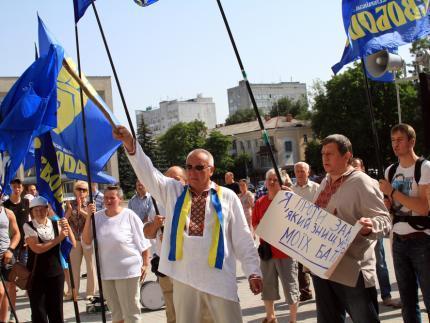
Talk to Ukrainians and the view you’ll hear from almost everyone is that “they”—Ukrainians—are passive, apathetic, and inert. I’ve heard this line in Lviv, Kyiv, and Donetsk as well as in Western Europe and North America. I’ve even heard it at, of all places, demonstrations in Ukraine.
The question that invariably follows is: “Why don’t they rise up and finally do something?”
The fact is that Ukrainians are doing something almost every day. Walk down most main streets in most cities and towns and you’ll usually encounter some protesters handing out leaflets or some groups raising a ruckus. Maybe not every day, but often enough to persuade you that at least some Ukrainians aren’t passive.
Naturally, most Ukrainians aren’t impressed by that kind of protest action. It’s too run-of-the-mill, too easy, too small, too quiet, too unimpressive. In a word, it’s no Orange Revolution, when millions rose up throughout the country to demand their rights in the face of the Kuchma-Yanukovych camarilla that had falsified the presidential elections of 2004.
The problem with revolutions, uprisings, and other displays of people power is that they are, by definition, infrequent. It takes an unusual concatenation of forces to induce millions to disregard their everyday concerns—such as survival—go into the streets, and, most important, stay there for weeks or even months. And when the result of a mass mobilization is failure, don’t be surprised if people become skeptical and wait.
On the other hand, that skepticism can also vanish overnight. Remember Poland’s Solidarity movement? It emerged seemingly out of nowhere in 1980 and survived as a mass movement for about a year, until General Jaruzelski cracked down. But its activists continued to promote their cause until, finally and almost miraculously, the regime toppled like a house of cards in mid-1989, and they, the dissidents who had languished in jail just a few weeks before, suddenly emerged victorious.
I mention Poland because the similarities between Yanukovych’s Ukraine and Jaruzelski’s Poland are too striking to ignore. Both regimes came to power after democratic mass movements failed to reach their agendas. Both regimes represented a restoration of the status quo ante and, as such, had absolutely nothing to offer their populations. Both regimes represent momentary pauses in inevitable social and political processes. Both leaders were singularly unimaginative and both ruling parties were hopelessly corrupt. Both democratic movements remained alive and well, in that significant parts of the population had internalized their values and rejected the loutish regimes in power. And both countries generated impressive civil societies that kept making demands during the dark years of repression and stasis. The next few years will see the final similarity: the Yanukovych regime, like the Jaruzelski regime some 30 years ago, will collapse under the weight of its own rot.
Meanwhile, Ukrainians are protesting like there’s no tomorrow. According to a study by the Center for the Study of Society, Ukraine has experienced 100 to 300 protest actions every single month of 2010 and 2011. The numbers are usually highest, between 200 and 300, when you’d expect them to be highest—during the spring months of March, April, May, and June and during the fall months of October and November.
Now that’s a helluva lot of protests, especially in a country that’s supposedly disinclined to protest. In the social sciences, you’d say that the evidence disproves the “passivity hypothesis.” In any case, it certainly doesn’t support it.
The numbers for this year are especially impressive. There have been about 100 to 150 more protest actions per month in March, April, May, and June than for corresponding months in 2010 and 2011. A more recent study (by the same center) of protests in July shows that, at 404, they exceeded the previous month’s 330 by 74. That’s a record, sparked largely by the Regionnaire-controlled Parliament’s adoption in late June of a law on languages that is as stupid as it is supremacist. Significantly, July also saw another record: the number of repressive responses went up from 70 in May and June to 101—a 44 percent increase.
Clearly, the Yanukovych regime has seen the writing on the wall and is terrified. And rightly so. If the upward protest trend keeps up, a second Orange Revolution becomes perfectly possible. And since the Regionnaires have to cheat in the forthcoming October parliamentary elections (cheating, you see, is as much a political imperative as a genetic predisposition), a fraudulent ballot could again serve as the spark that drives the masses into the streets.
The regime is currently working overtime, trying to rig the electoral rules, gerrymander districts, split the opposition, manipulate the press, buy votes, and so on. Some of that will work, if only because the oligarch-funded Regionnaires have billions of dollars to throw around. But you can’t fool all of the people all of the time and, as Jaruzelski discovered in 1989, you can’t even fool some of the people some of the time—especially if you’re a deadbeat leader who is perceived by everyone as a deadbeat leader. Note that, in just the last two months, support for the Regionnaires has fallen five percentage points—from 28 percent to 23.
The protests in Ukraine will continue, of course. Unlike Jaruzelski, who dared to crack down in 1981 because the Soviet Union had amassed its soldiers on the Polish border, Yanukovych knows that the thousands of new militiamen he’s recently hired are just regular guys trying to make ends meet. When push comes to shove, they’ll join their friends and neighbors and give the Regionnaires a mighty heave-ho.
August 9, 2012
Yanukovych's Absurdistan
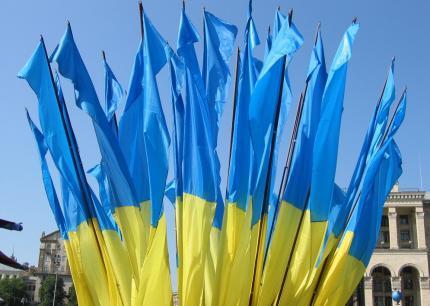
Regionnaire-ruled Ukraine moved a few notches closer to becoming a Surrealistic country this summer. Judge for yourselves.
On June 22nd, the Dzerkalo tyzhnya weekly reported on a really swell strategic defense initiative developed by Ukraine’s minister of defense, the tough-guy brawler and pogromchik Dmitri Salamatin. The minister’s got his thinking cap on, and he’s come up with 78 new forms of “economic activities” for Ukraine’s underfunded, undernourished, and undertrained armed forces. If Dmitri has his way, Ukraine’s soldiers will soon be raising cattle, horses, birds, pigs, sheep, and goats and growing berries, nuts, and fruits. Hey, who needs NATO, when you’ve got swine in your backyard? So remember, next time you have a steak in Ukraine, you’re really helping Dmitri of the Big Fists transform Ukraine’s soldiers into a world-class fighting force.
Peanuts, anyone?
On July 4th, the Ukrainian Parliament approved draft law No. 9634, which relieves state-owned enterprises from the obligation of engaging in tenders when procuring a whole bunch of goodies such as land, property, services, and other products. Unsurprisingly, President Yanukovych subsequently signed the bill. To be sure, Ukraine’s tenders have historically been rigged, but the brazenness of the Regionnaires’ open endorsement of graft, theft, and kickbacks is jaw-droppingly spectacular. On the other hand, what the hell, right? Why pretend football stadiums and airport terminals cost twice as much as they should cost? Why not streamline theft by removing all that red tape? Heck, why not really streamline things and just get rid of the budget? Jeez, why not declare Ukraine the president’s estate and be done with all those stupid little formalities such as elections, parties, newspapers, and so on?
But wait, things got better.
On July 12th, Russian President Vladimir Putin was supposed to meet Yanukovych in Yalta for a high-level powwow. Putin was more than four hours late. Reasons of state? A sudden illness? An ingrown toenail? Another invasion by that hotbed of imperialist aggression, Georgia? Nyet. Turns out that Russia’s Great Leader was flexing his muscles with a biker gang. Here’s how the Interfax news agency described the event.
Russia’s President Vladimir Putin started his current visit to Ukraine from [sic] dropping in a bikers’ club called Night Wolves near the city of Sevastopol.
Mr. Putin is a frequent visitor of bikers’ shows, and in the club, he met many of his old friends, including the club’s head Alexander Zaldostanov, more known under his nickname “Surgeon.”
“Surgeon” invited Mr. Putin to a show which is due to take place in his club on July 20 and 21.
In 2013, The Night Wolves are planning a show devoted to the 17th anniversary of the Stalingrad battle, one of the most decisive battles of WWII. In 2014, they are planning a large-scale meeting of Russian, Ukrainian and Serbian bikers in Serbia.
After visiting the club, Vladimir Putin went to the city of Yalta to hold talks with Ukraine’s President Victor Yanukovych.
The two presidents are going to discuss Russian-Ukrainian economic cooperation and acute problems of the world politics, including the Syrian issue.
What, you ask, was Yanukovych doing in the meantime? Clipping his fingernails? Cracking jokes with his entourage? Envisioning life in Zimbabwe after democracy returns to Ukraine? Trying to hire Surgeon as his minister of health?
Had enough?
On July 24th, the civic group Chesno (“Honestly”), which monitors corruption in the Rada, published its survey of Ukraine’s current parliamentarians. As it turns out, of 449 deputies, only three received a clean bill of health. All the others were involved in various forms of dishonesty, corruption, shenanigans, and the like. In case you’re wondering, that translates into 0.66 percent. The only good news is that all three were not Regionnaires.
Finally, on July 26th, Ukraine’s eagle-eyed Security Service (SBU) uncovered a tunnel that was being used for smuggling cigarettes from Ukraine to Slovakia. The concrete-lined affair is 600 meters long, 90 centimeters wide, is electrified, and has tracks. It’s located some 500 meters from a border guard post and was constructed in full view of the locals living in the area. Clearly, this was no penny-ante operation run by cheap hoods. This was a big-time deal conducted by criminal elements in cahoots with the local authorities and border guards. Might higher-ups in Kyiv also be involved? Why not? Think of the tunnel as a way of bypassing tenders. Who knows? Maybe the tunnel even extends from the border to the presidential palace in Kyiv. Come to think of it, is that why Kyiv’s public places were recently declared smoke-free? But wait! Maybe the tunnel goes on to the Kremlin, and maybe that’s how Putin and Yanukovych really meet?
Thank God that Ukraine closes down for August. Another month like July and Yanukostan would become Dadaist.
August 2, 2012
On the Ukrainian Waterfront
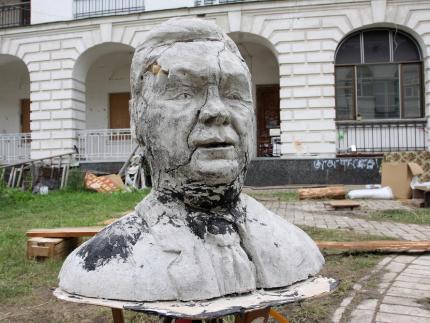
Permit me to share a few comments I received from an Eastern European diplomat (who asked to remain anonymous) about Western stereotyping of Eastern Europe in general and of Ukraine in particular. The diplomat’s remarks were prompted by my two-part blog post on “Germany, East Central Europe, and Morality.”
I must admit your last few pieces in the World Affairs Journal have been very necessary. It’s an uphill battle, I know, but since one of my own hobby horses for the past 20 years has been the simplistic and misguided, often racist, views of Eastern Europe, your efforts are highly appreciated. Indeed, I have been long convinced that the only peoples these days towards whom you can be outright bigoted and remain comme il faut and salonfähig in our politically correct world are the Zwischenländer—the lands in between the West and the East. In fact, even Nobel Prize winners with regular columns in the New York Times get away with it. So, good luck.
Aside from ranting and railing, however, there’s one other way of changing things: being better. My rants on “Polish plumbers” in France, “Estonian criminals” in Finland, and corrupt Eastern Europeans have at least embarrassed some Frenchmen, Finns, and other Western Europeans to the point where they know they will be called out. Being better is harder, but the euro crisis has helped level things a bit. At least Poland and Estonia today have gotten some grudging, very grudging, acceptance, though Paul Krugman–like lefties still feel free to bash.
With new dividing lines developing in Europe, along the lines of North vs. South, and not history, there is some hope. This is why I am so unhappy about Ukraine. Unless you have something good to show, unless you can offer positive surprises to received ideas, those received ideas will not change. The Yanokovych kleptocracy is no worse than Putin’s, but since there’s no energy dependence on them, no military threat, Ukraine has become the ideal Eastern European “Other.” Hence, there is no need to be civil toward Ukraine, as there is nothing to lose. Does anyone believe Western leaders will stay away from the Sochi Olympics because of Khodorkovsky or Magnitsky in the way they boycotted the Ukrainian half of the UEFA 2012 soccer matches?
It’s that “I coulda been a contender” feeling of Marlon Brando in On the Waterfront. Coulda. But instead, with every new bit of thuggery coming from the Yanukovych regime, those received ideas get renewed empirical corroboration. And Ukraine simply becomes the stand-in for the contempt with which Europeans hold Russia no less than Ukraine, but will never say.
What a revolting fate for Ukraine: to be Russia’s stand-in!
If you’ve seen On the Waterfront, you’ll know that Brando does in fact stand up for the good at the end of the film and thereby finds redemption. There is of course no chance whatsoever that Viktor Yanukovych or his cronies would or could ever develop the moral and political backbone to do the right thing and stop treating Ukraine and Ukrainians as their personal property. Too bad. Yanukovych could have been a “contender.” All he had to do after being elected president was to introduce some reforms, curb some appetites, and behave as the president of all of Ukraine. The task wasn’t too tall, but it did require turning his back on the thuggery of the Regionnaires and regarding the Donbas underworld as only one part of Ukraine. Instead, Yanukovych chose to become Brando’s counterpoint in the film—the crime boss, Johnny Friendly.
No longshoreman likes or even respects Johnny, and his power rests exclusively on the failure of the broad masses of the population to stand up for their rights and say No to the muscle-bound hoods who run the waterfront. When Brando does say No, and challenges Johnny to a fight, the longshoremen lose their fear and turn against Johnny. One of them even pushes him into the filthy waters of the Hudson River, while the rest break out in laughter. As a friend in Ukraine told me, “The Regionnaires understand only strength. If you stare them down, they’ll slink away.”
Yanukovych would do well to study the film. Whether or not Ukrainians say No to the mob in the forthcoming parliamentary elections in October, sooner or later they’ll shove him into the Dnipro. Now may be the time for the Prez to invest in some drip-and-dry Armani suits.
July 27, 2012
Yanukovych Cracks Down on Independent Media
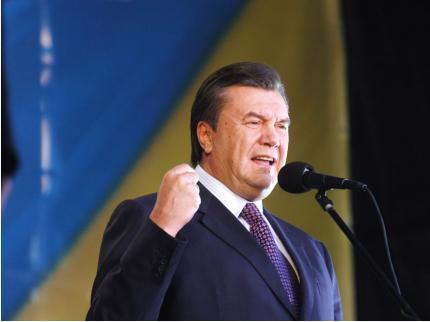
Ukraine’s only fully independent television station, TVi, has come under renewed attack by the Regionnaire regime of President Viktor Yanukovych. The move is obviously intended to deprive the public of alternative information in the run-up to the October 2012 parliamentary elections. Since all polls show the Regionnaires cannot win a fair and free contest, the crackdown on TVi is also a practice run of the kind of mass falsification they will employ to claim victory.
Ukraine’s notorious tax police raided TVi’s offices on July 12th and confiscated four years’ worth of financial documents. The authorities subsequently charged TVi’s CEO and general director with tax evasion. The charge is especially absurd inasmuch as the authorities owe the station value added tax (VAT) reimbursements. As its irrepressible CEO, Mykola Kniazhytsky, put it: “There’s a saying among gangsters: I forgive everyone I owe something. Insofar as we live in a gangster state, that saying has been transformed: I don’t forgive anyone I owe something.” Although the Kyiv city procurator’s office withdrew the charges on July 27th, the message to independent media was loud and clear: express critical opinions at your own risk.
According to Poland’s Gazeta Wyborcza newspaper, the claim of non-payment of taxes “is a favorite method by means of which the state organs of the former USSR harass the opposition and inconvenient businessmen. TVi is in fact the only independent television station in Ukraine that engages in open criticism of President Viktor Yanukovych and his circles. All other stations either belong to oligarchs with whom he’s connected or to businessmen who do not want to criticize the authorities openly.”
Regime harassment of TVi began in 2010, just after Yanukovych’s election, and has continued, more or less uninterrupted, since. It usually peaks in the summer months, when Ukrainians are distracted by vacations and trouble-making students are at home. Just before the tax police launched its assault on Kniazhytsky, TVi had been denied a license to broadcast digitally. As a result, it will reach less than half of Ukraine’s population via cable and satellite, while regime-friendly channels with digital licenses will access all viewers. That matters, as most Ukrainians get their news from television.
The attack on TVi comes as the regime cracks down on one of Ukraine’s feistiest Internet sites, Left Bank. Its editor, Sonia Koshkina, fled the country in early July after a Regionnaire bigwig filed bogus criminal charges against the site. The other shoe dropped on July 18th, when a Kyiv district prosecutor’s office charged the site with “violating the secrecy of the letter writing or other correspondence of a state person … and the illegal collection, use, and dissemination of confidential information, thereby causing significant harm to the rights, liberties, and interests of the person.” That same day, the site was closed down. Left Bank’s “crime” was to disseminate a photograph of Regionnaire parliamentarian Volodymyr Landik’s text message to his playboy son, Roman, who had been videotaped pummeling a woman in a Luhansk restaurant on July 4, 2011, and subsequently imprisoned.
According to the Kharkiv Human Rights Protection Group:
On 18 November [2011] during the parliamentary vote on the parliamentary elections bill, LB.ua [Left Bank] photographed Party of the Regions MP Volodymyr Landik texting his son who was at that time in custody … LB.ua says that from the contents of the SMS it is clear that in order to optimize his son’s image, Landik Senior is engaging political technologists as well as journalists from the Luhansk TV company to write positive comments in the news and texts about the Landik Junior trial. At the time Landik Senior made various aggressive statements, including a demand that Ms. Koshkina “publish her sanitary pads” but only approached the Prosecutor 8 months later … The LB.ua editorial team express surprise at the Prosecutor’s request for information in respect to this application and cannot exclude the possibility of a political aspect to the case. The fact that Landik Senior waited so long arouses wariness, they add and say that their lawyers do not see any unlawful behavior in the actions of the journalists.
The regime’s attack on both TVi and LB.ua portends the kind of dirty tricks it will use in the parliamentary elections this fall. Having consistently ignored the well-being of the population while promoting their own lavish lifestyles, the Regionnaires can win if and only if they cheat—and everybody knows it. Naturally, such a strategy requires curbing media freedoms. After all, skullduggery works best if no one knows it’s going on.
Fortunately, many Ukrainians have rallied around TVi and Left Bank, and the battle is far from lost. Most people understand that the elections are critical and that, if both news outlets go, the Regionnaires will falsify at will. In that sense, the battle for the stations’ survival is not just a struggle for media freedom. It’s a struggle for the soul of Ukraine. Will it finally become a country in which ordinary people enjoy human dignity or will it remain the feudal property of Regionnaire robber barons?
July 20, 2012
Ukrainians in a Funk

The Euro 2012 soccer games are over and the heady euphoria of being part of the civilized world has dissipated. Ukraine is back to normal: a brutalized country subjected to the daily predations of a gang of thugs who call themselves a government. Unsurprisingly, those democratically attuned Ukrainians who desire to live like the Europeans who visited Kyiv, Lviv, Kharkiv, and Donetsk in July are depressed.
Most young people seek to emigrate—for good. A 30-something student I’ve known for several years has for the first time spoken of leaving a place that appears to offer his generation nothing but continued hopelessness. Advertisements for English-language courses are everywhere. Older Ukrainians, with family, property, and professions, opt for what one friend called “internal exile.” As the ruling Party of Regions squeezes the nascent middle class for all its worth, 50-plus Ukrainians focus on their families and apartments, build dachas, and effectively “drop out.” Unfortunately, although the choice to withdraw is perfectly understandable, it only strengthens Regionnaire power by depriving Ukraine of its most ambitious young people and older patriots.
Everyone is both shocked and unsurprised by the renewed Regionnaire assault on Ukrainian identity. No sooner did the football games end, when the Regionnaire-run Parliament violated every procedure in the book and pushed through a language law that is nothing less than a declaration of war on Ukrainian. As Yuri Makarov, a moderate Ukrainian journalist (of ethnic Russian background!), has written: “The Rubicon has been crossed. By adopting the [language law] the authorities have completely and irreversibly demonstrated their lack of legitimacy …. It must be underscored: as of today, the entire government in Ukraine is illegal.”
Preposterously, the law’s supremacist engineers insist that the Russian language is under threat from Ukrainian and therefore needs protection—a claim that is tantamount to saying that English is under threat from Spanish in Maine. The Regionnaires’ obvious intent is twofold: to return Ukrainian to the status it had in Soviet times, as a half-dead language used in street signs and the folk kitsch produced by officially approved hack writers; and to deprive the population of a conceptual alternative to Russian, which serves as an instrument of both Sovietization and Putinization. Ironically, the actual effect of the law will be quite different.
After all, like everything the Regionnaires do, the law is a mess. Willy-nilly, therefore, the Ukrainian language will survive and perhaps even thrive as people are forced to stand up for their selves. In contrast, Russian speakers and Ukraine itself could suffer serious body blows. By encouraging Russian-speaking Ukrainians in backward places like the Donbas to remain mired in the Soviet past, the law will only underscore their continued status as a degraded Lumpenproletariat. And by enabling all speakers of “minority languages” to demand services in their language if 10 percent of the population of some “territory” so desires, while failing to specify just how officials at various “territorial” levels are supposed to communicate, the law will only enhance Ukraine’s institutional chaos and bust the budgets of local governments. The likely end effect is the transformation of language from a tool of everyday communication into a marker of political identity, the growth of linguistic and regional polarization, and, quite possibly, the break-up of Ukraine into a Ukrainian-speaking west and a Russian-speaking east. The Regionnaires wouldn’t mind such an outcome, as it would rid them of pesky pro-Western national democrats and enable them to ride roughshod over their benighted Russian-speaking compatriots. Neither would the democrats, as they’d finally be freed of the ballast of Regionnaire antediluvianism.
The funk extends even to the parliamentary elections in October. Most people I’ve spoken to believe that the Regionnaires will steal the ballot. Everyone knows they’re incompetent crooks, clods, and thugs, but everyone expects them to resort to all manner of fraud, ignore the finger pointing of the West, and outwit what they consider to be a weak opposition. A contest of “losers” is how one editor termed the elections. There’s a real danger that voters will stay home and, in a fit of perfectionist maximalism, not vote for the significantly lesser of two evils, thereby handing the elections to the Regionnaires. That would guarantee Viktor Yanukovych’s reelection in 2015 and subject Ukraine to eight more years of Regionnaire rapine. When asked what they expect to happen then, people smile and say that somehow things’ll work out. Obviously, young people who want to vote with their feet disagree.
One analyst compared Ukraine today with Soviet Ukraine in the late Brezhnev period. The language, culture, and identity are targets of official Russification, the government consists of political Neanderthals with no regard for law, the opposition consists of a few scores of dissident intellectuals, the population is depoliticized and afraid, Western Europe and the United States are indifferent, while Vladimir Putin’s Russia is hoping to reclaim lost influence in its former empire. “We have to start from zero,” he said.
I’m not so sure. After all, Ukraine has existed as a state, even if of the unusually crummy kind, for 20 years. Ukrainian identity is no longer something tolerated only in concentration camps. Even in Donetsk, the locals rooted for the Ukrainian football team and waved the Ukrainian flag. The Yanukovych regime, although it sports the methods of the mafia, consists of half-wits who know how to steal, but who have no idea how to govern. And the opposition, however unattractive to locals, is not quite a pushover, while a vigorous civil society does after all exist. All these factors may or may not be enough to stop the thugs, but destroying Ukraine won’t be a cakewalk for the Regionnaires.
The 30-something student who’s thinking of emigrating captured both the pessimism and implicit optimism of prevailing popular sentiments. “What is Yanukovych going to do with his purloined estate after he leaves office? Defend himself from popular anger with machine guns?”
Fortunately, after eight more years of Regionnaire cloddishness, the machine guns are sure to jam.
Alexander J. Motyl's Blog
- Alexander J. Motyl's profile
- 21 followers



